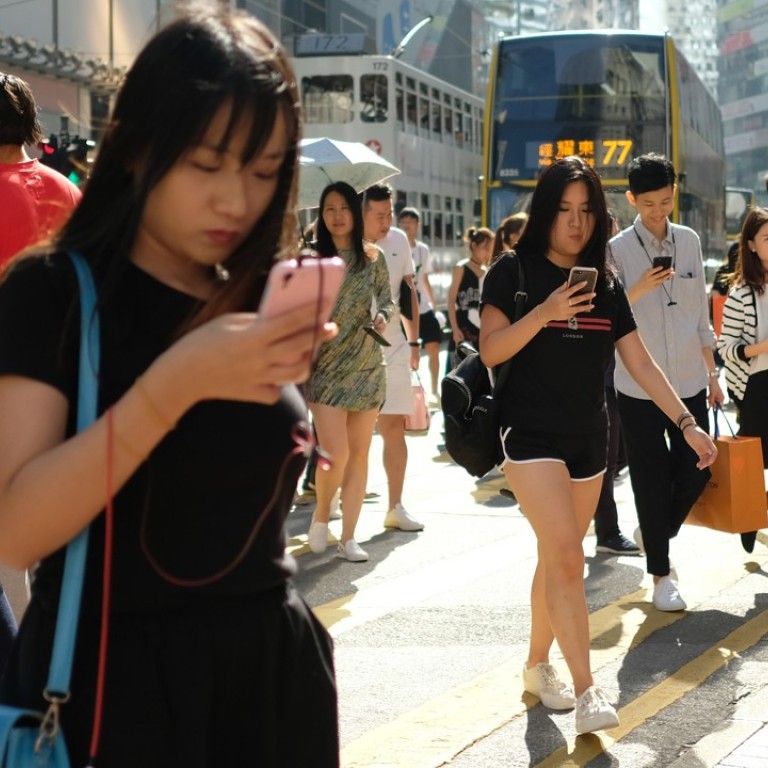
Hong Kong’s people are a great source of smart information: let’s make use of it
- Incorporating data and information provided by ordinary people into the city’s networks could save money and hasten the achievement of the government’s smart city goals
In this modern connected world, where we often hear of the need for Hong Kong to stay competitive and build a more resilient and harmonious society, our city managers should consider how to harness the power of our citizens’ willingness to share.
By that, I mean the sharing of information, for example the traffic situation, fires, flash floods and anything useful for people looking for smarter mobility, smarter living or just simply wanting to find a smarter way to get home or to work.
The amount of pictures and videos taken from social media and reused by mainstream media during the recent Typhoon Mangkhut is living evidence that such shared data is timely, accurate and could be life-saving.
Social media is often the main way of disseminating information in times of critical events such as disasters, and is very efficient. At the same time one of the objectives of the sharing economy is to bring things to those with less access to resources. Sharing from the haves to the have-nots is therefore instrumental in increasing efficiency when allocating the city’s limited resources.
The government’s Efficiency Office has been operating a service called 1823 which takes input from ordinary people on just about anything. The 1823 website also allows uploading of videos. Now the new HKeMobility and eTrafficNews apps from the Transport Department are also a big step forward in sharing traffic information.
From a public service standpoint, no one is going to dispute that investment in developing apps, building information technology infrastructure and having the right governance model are as important as building a miles-long bridge from one city to another.
But one issue I would like to highlight is whether our city managers should start thinking about ways to use data supplied by ordinary people to augment other information collected from CCTV, networked sensors and even smart lamp posts to build a truly open data strategy.
The current data.gov.hk website is an open portal of data from bureaus and departments but does not use the information contributed by ordinary people through 1823 or social media.
The building of bridges proves the value of network theory: a network of roads leads to new possibilities, new values and new rewards. One person alerting others about an incident through social media and instant messaging leads to many possible solutions. If ordinary people’s eyes and ears could be incorporated into the sensory network of the city, it would eliminate the need for a lot of investment in infrastructure – which in itself costs a lot for city managers to administer.
The accuracy and usefulness of such information could easily be validated and enhanced by designing machine learning algorithms and by big data analytics.
Indonesia offers examples of how such a system incorporating data from the public could work. Twitter has been used in the capital Jakarta for reporting flash floods, while through the country’s intelligent platform Qlue, local authorities have been able to engage with business enterprises, entrepreneurs and application developers to come up with useful ideas and solutions to address urban issues ranging from bin collection to reporting the location of potholes.
With the modernisation of Hong Kong’s mobile network and the promise of new 5G networks, coupled with advances in smartphone technology such as geolocation and video capture capabilities, as well as the new electronic identification scheme recently proposed by the government, it would be prudent to take this opportunity to build a holistic open data governance framework that values the sharing economy and reuses data from the public to achieve smart city objectives.
Daniel Chun is the chairman of the research and blueprint committee at the Smart City Consortium and adjunct lecturer at HKU Space in technology and communications

